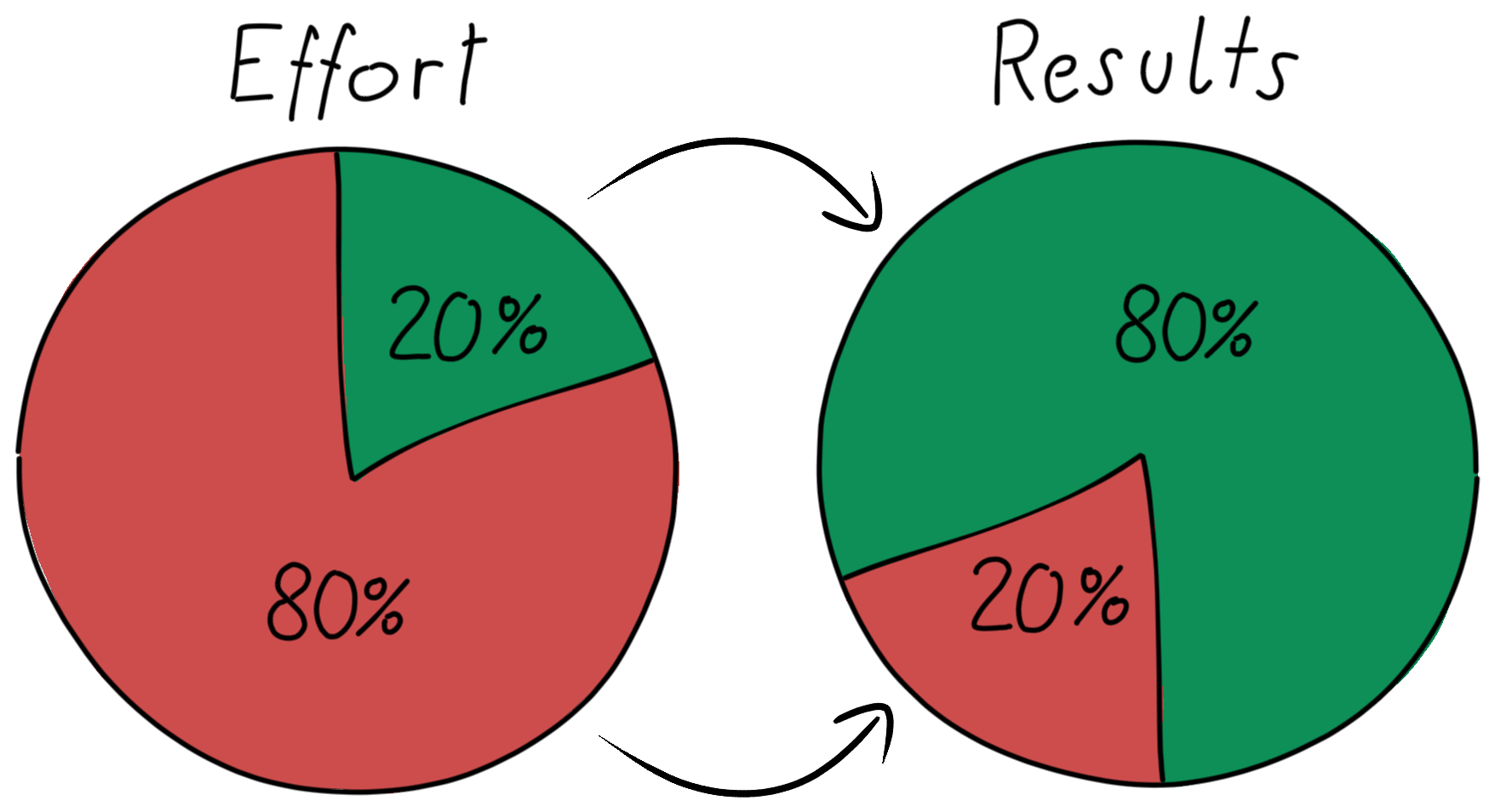The Pareto principle, named after the economist Vilfredo Pareto and also called 80/20 rule, states that 80% of consequences come from 20% of causes. This is a rough estimate of course, however, it applies to an astonishing large variety of cases, for example to economics, computer science, sports, etc. We will apply it to – you guessed it – to goal setting.

Effort vs. Results
For goal setting the Pareto principle means that with 20% of the effort you will reach 80% of your goal. And it means to reach the last 20% you need 80% of the effort. It is a trade-off between effort and the level of perfection. In many cases good enough is good enough.
Let’s say your goal is to learn a new language so you can communicate better while travelling. If you start from zero you can reach quite an OK level within a few months. That might be absolutely sufficient for your purpose and becoming fluent and accent-free might be quite some way to go. And it might be an overkill for your goal to communicate on a basic level. In this case your goal is not to learn the language perfectly. Your goal is to communicate and thus the language is just a tool. Good enough is sufficient and you will improve on the way if you practice and communicate more.
The Last 20 Percent
Sometimes your goal indeed is to reach the last 20%. You might want to become one of the world’s best marathon runners, violin players or scientists. This surely requires the extra mile and you need to put the extra effort to reach these kinds of goals. You need to train hard, learn hard and sometimes you even need a good portion of luck.
Effort vs. Effect
What we can learn from the Pareto principle is to use our effort wisely. Plan upfront when good enough is sufficient or when it is worth it to go the extra mile.
When you would like to achieve amazing results or big goals you probably need to leave your comfort zone and that means extra planning, effort, action and courage. However, for some tasks or milestones the Pareto principle can help you to save some effort and energy you can then use otherwise.
Think About Your Effort
Now it’s your turn. Think about your goal or milestone and think about the effort you put into achieving it. How much effort do you really need to put into achieving your next task? Does it need to be (nearly) perfect or just good enough? Be aware that your effort is a limited resource. Use it wisely and be aware that if you put too much effort into one (unimportant) task this might be at another (more important) task’s expense.
It might be tempting to put all your effort into an easier or more fun task. Don’t fall into this trap. Think about what is important and put your effort there. The Pareto principle can help you to decide where to put your most effort in.
Do you need some help with finding, setting, or achieving your goals? Or, would you like to learn more? Check out our free mobile app or our booklet.
